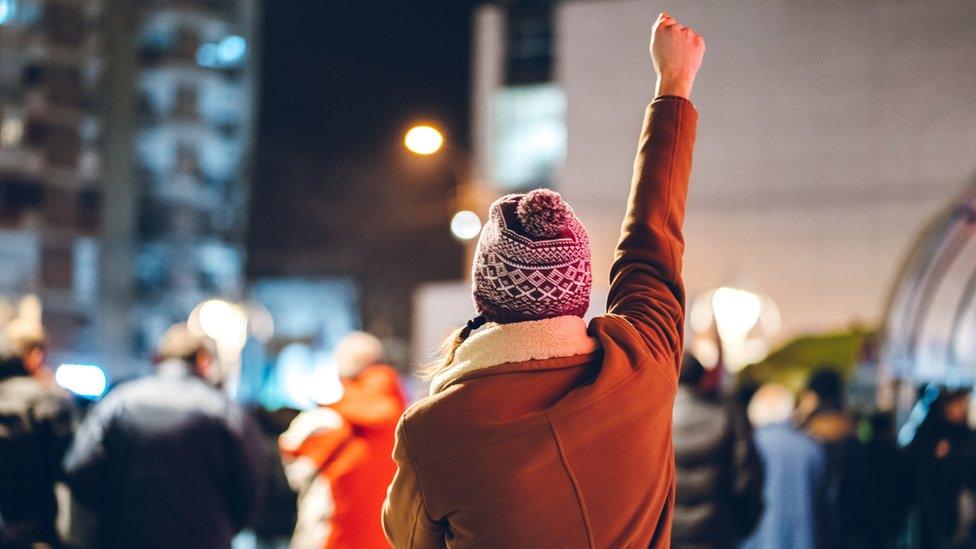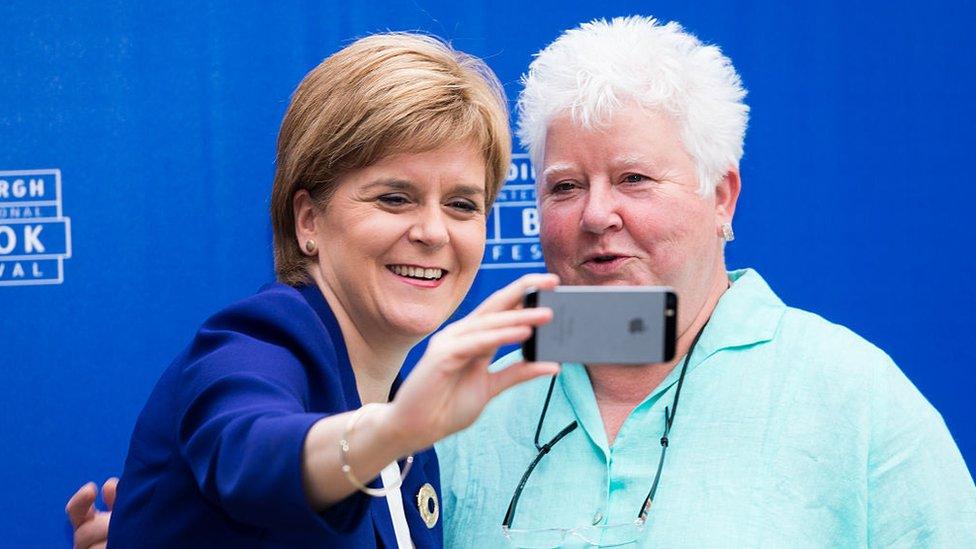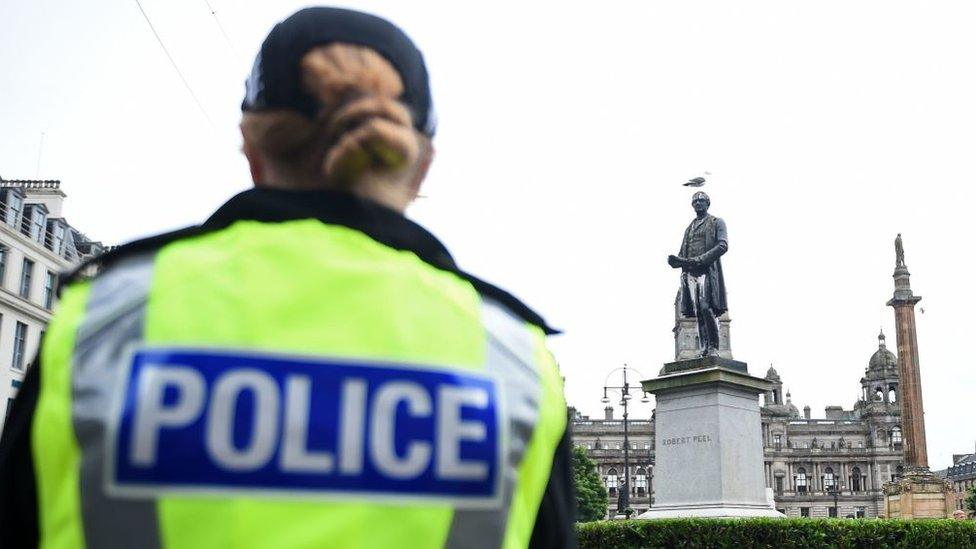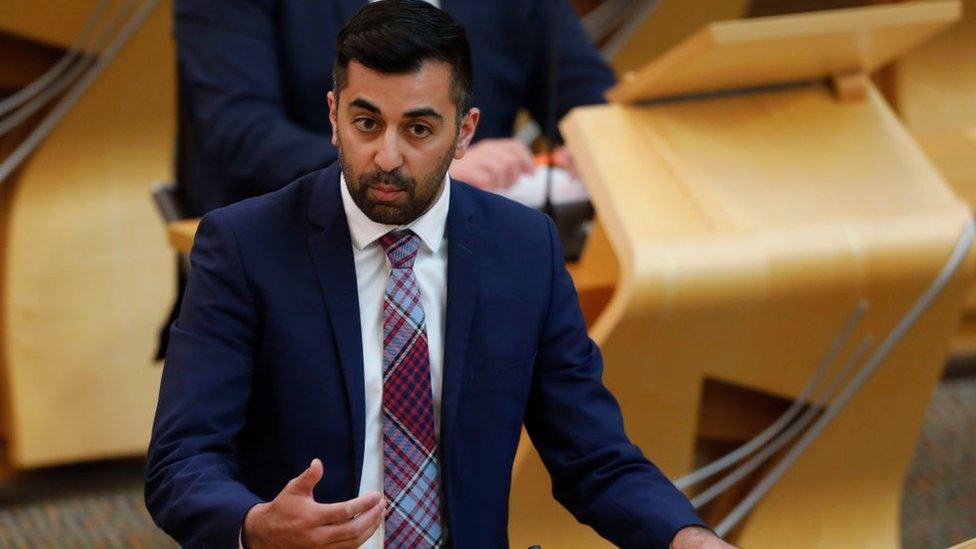'Unprecedented' response to hate crime proposals
- Published

Controversial proposals for a new hate crime law in Scotland have prompted an "unprecedented" response, according to the convener of the justice committee.
Conservative MSP Adam Tomkins said the number of submissions showed that the plans were contentious.
A consultation on the plans prompted 2,000 responses, external, including support from Age Scotland, Victim Support and the Equality and Human Rights Commission.
However, critics say it lacks clarity and could threaten freedom of speech.
The Scottish government wants a new law to protect people persecuted over age, sexual orientation, race, religion, disability or transgender identity.
Mr Tomkins said hundreds of individuals and organisations had made their views known during the consultation on the legislation.
"The number of submissions we have received is unprecedented and reflects that this bill is contentious," he said.
"Given the importance of this legislation - and the strength of feeling it is generating - it is vital that sufficient time is allowed for scrutiny."

Author Val McDermid was among 20 writers who signed an open letter criticising the plans
The committee aims to complete its stage one report by 18 December, although its Mr Tomkins said it would revisit that deadline if necessary.
The Scottish government introduced the Hate Crime and Public Order bill, external in response to recommendations from senior judge Lord Bracadale.
It aims to simplify the law by bringing together multiple existing hate crime laws into a single piece of legislation.
However, it would also create a new crime of "stirring up hatred" either "with intention" or "where it is a likely consequence" of an action.
The proposed legislation has drawn criticism from a cross-section of society and prompted a letter signed by 20 authors, including Val McDermid, which warned the plans could "stifle" freedom of speech.

The Scottish Police Federation - which represents rank-and-file officers - claimed the bill "appears to paralyse freedom of speech in Scotland".
The Faculty of Advocates has raised concerns over "unintended consequences" for free speech.
However, the Equality Network is among those who support the bill.
It said it agreed that any new law should not impinge on legitimate free speech, adding: "We note that the existing stirring up racial hatred offence has not done that and neither have, in England and Wales, the offences there of stirring up hatred on grounds of religion or sexual orientation."
Support was also voiced by the Scottish Council for Jewish Communities, which said it would make current laws "more comprehensible, and also provide everyone with equal protection before the law."
Police Scotland said "the simplification of hate crime legislation would assist the understanding of victims, society as a whole, and indeed police officers".

Humza Yousaf said he knew from personal experience the distress that hate crime caused
Justice Secretary Humza Yousaf said he would consider "very carefully" the views of those who submitted responses to the public consultation.
He said he knew from both personal experience and the "powerful testimonies of others" about the physical and mental distress that hate crime caused its victims.
He added: "I welcome the many responses that support the main purpose of the bill - to make clear that crimes motivated by hatred and prejudice will not be tolerated in modern Scotland.
"The bill does not seek to stifle criticism or rigorous debate in any way but aims to achieve the correct balance between protecting those who suffer from the scourge of hate crime whilst respecting people's freedom of expression."
Mr Yousaf said he would work to find common ground and compromise as the bill made its way through the Scottish Parliament.
Scottish Conservative justice spokesman Liam Kerr said Mr Yousaf should heed the "avalanche of opposition" to the proposals.
"This level of substantial criticism cannot simply be waived away or ignored," he said.